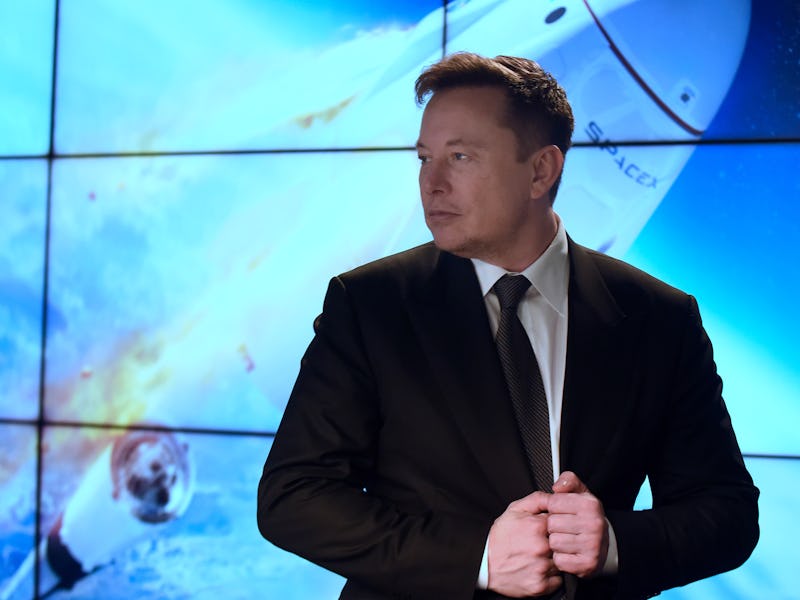SpaceX: Sci-fi fans will immediately get this Elon Musk tweet
The SpaceX CEO is a big fan of space fiction.

Elon Musk's on a mission to get to Mars, and if his Twitter presence is anything to go by, he's taking inspiration from some of science fiction's greatest writers.
The SpaceX CEO, who aims to establish a city on Mars by 2050, shared a Twitter post Monday that ought to be familiar to fans of sci-fi novels: "Mars is to Earth, as Terminus was to Trantor."
Fans of Isaac Asimov may recognize the comparison from the interstellar empire that regularly featured in his work. The empire featured in the Robot, Galactic Empire, and Foundation series of books, and critics have compared it to the Roman Empire.
The comparison may go some way toward revealing Musk's thoughts about how he perceives the Mars city. In the series, Trantor serves as the capital of the empire, a planet seemingly modeled on Rome. It measured 75 million square miles, around 40 percent the size of Earth, with a population of 40 billion people.
Musk's tweet.
Economist Paul Krugman wrote in 2012 that Trantor "comes across as a sort of hyper-version of Manhattan in the 1940s" thanks to it being entirely covered in metal and serving as a sort of mega-metropolis. Krugman noted, however, that Trantor's population density was only half that of New Jersey, a state that manages to avoid encasing itself in metal.
Terminus, which Musk compares to the future Mars settlement, is a planet at the edges of the galaxy later settled by humans. The settlers build a city, Terminus City, and it's settled by teams of academics. The team works to preserve knowledge in the Encyclopedia Galactica, aimed at reducing the length of a predicted dark age for the civilization.
The comparison draws to mind Musk's previous comments about why he wants to build a city on Mars. During a September 2019 SpaceX press conference, where he described the Starship that could ferry the first humans to Mars, Musk explained how he saw the mission as part of a broader goal to preserve humanity.
SpaceX's vision for a city on Mars.
“It appears that consciousness is a very rare and precious thing and we should take whatever steps we can to preserve the light of consciousness," Musk said. "Only now, after 4.5 billion years has that window been open. That’s a long time to wait and it might not stay open for long. I’m pretty optimistic by nature, but there’s some chance that window will not be open for long, and I think we should become a multi-planet civilization while that window is open.”
Humanity, Musk argued, has only been on the Earth for a fraction of the planet's 4.5-billion-year history. The ability to send humans to Mars may offer a small window to preserve humans and expand out further, Musk explained.
It's not the first time Musk has taken inspiration from Asimov. SpaceX launched the Foundation trilogy into space in February 2018, onboard a red Tesla Roadster that acted as the test payload for the Falcon Heavy rocket.
Based on Musk's latest comments, it seems the Falcon Heavy launch will not be the last time Asimov plays a role in SpaceX's work.